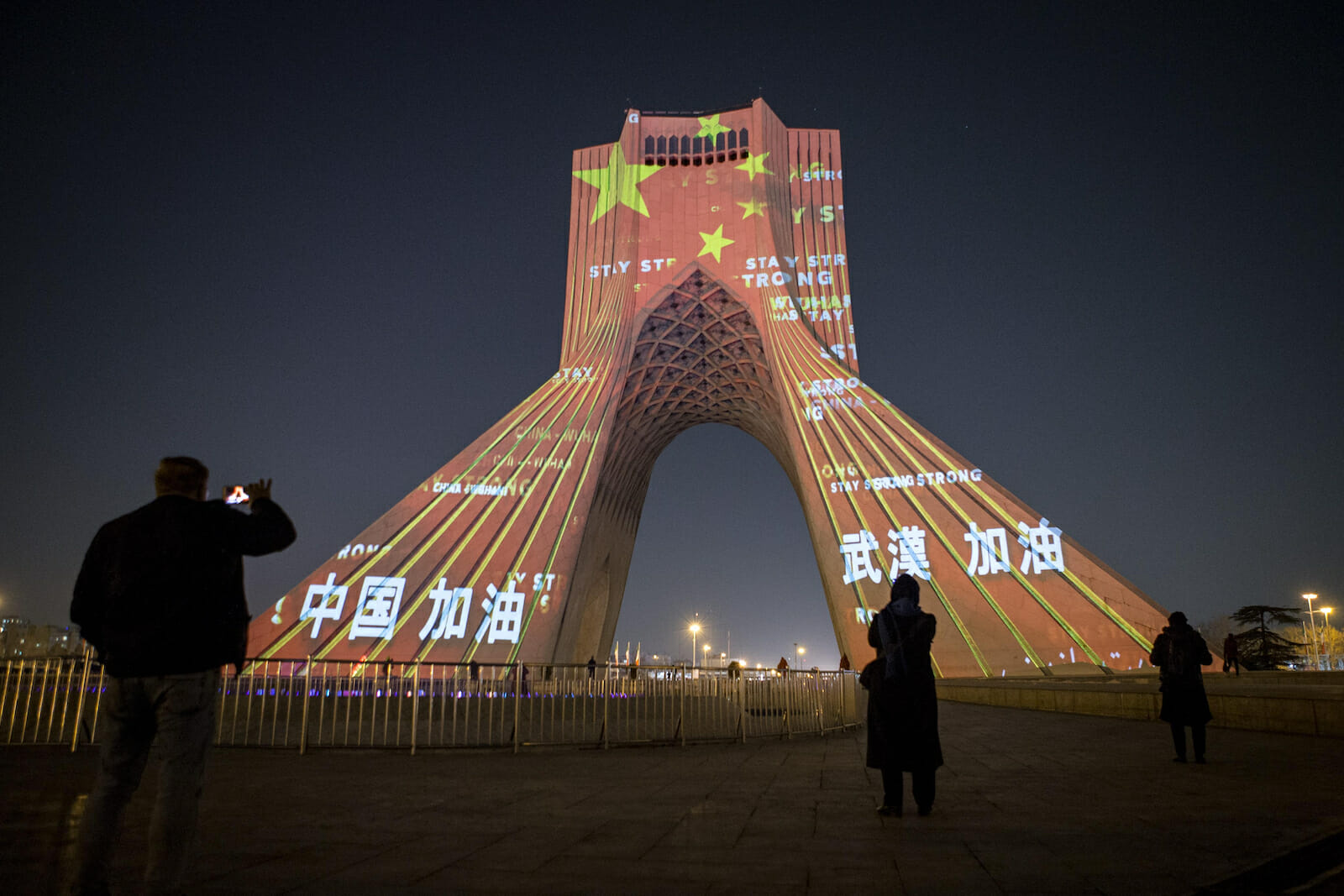
Political and Geopolitical Risks to China’s Economic Relations with Iran
For more than two decades China has been the largest trade and investment partner of Iran. Yet in recent weeks many Iranians have voiced strong opposition to a proposed comprehensive Iran-China economic cooperation agreement. An agreement that has reached the final stage after more than four years of negotiations. While the Iranian government has not released the full text of this agreement, opponents have referred to leaked documents to claim that it will compromise Iran’s economic interests and undermine its sovereignty. Independent observers that have looked at the document and are familiar with China’s similar agreements with other countries in the context of the Belt and Road Initiative argue that these accusations are exaggerated.
The opponents of the proposed agreement are diverse. They range from several members of the ruling elite such as the former president, Mahmoud Ahmadinejad, to domestic critics of the regime who seek political reform, to the regime opponents that are interested in regime change. If the opposition to the Iran-China agreement was voiced only by the regime opponents, the government could have easily dismissed it. However, since it includes many regime insiders such as Ahmadinejad, the supporters of the agreement have been forced to defend it in public forums and media interviews. The camp of the supporters is also diverse. It includes President Rouhani and his cabinet on the one hand, and the Supreme Leader Ali Khamenei and his conservative supporters, who don’t like Rouhani, on the other.
Furthermore, based on the reactions on social media it appears that a majority of the urban middle-class are also opposed to the Iran-China deal. The combination of economic sanctions, government’s incompetence in the management of the economy, and the government’s handling of the coronavirus pandemic, has led to considerable discontent and resentment among these middle-class citizens. Many have taken to social media with strong anti-China sentiments.
Under the current political and economic conditions of Iran, and the negative opinion of many Iranians about China, the Chinese government must carefully evaluate the consequences of signing a formal long-term comprehensive strategic agreement with Iran. Comprehensive strategic partnerships (CSP) are not a new development and China has signed several CSPs with developing countries that have joined the Belt and Road Initiative since 2013. In the Middle East, these include Iraq, Egypt, Saudi Arabia, and the UAE. While economic agreements with China have provoked some negative backlash in other countries (for example Iraq), the harsh reaction of Iranians to the proposed Iran-China CSP is unique and unprecedented.
Causes of the Backlash
This negative backlash is more a result of the current political environment of Iran than the substance of the agreement. Two distinct sources of opposition are worth considering. First, some hardcore opponents of the Islamic regime are opposed to this CSP because they are worried that it might actually help the regime survive. From their point of view, the unilateral U.S. sanctions and the sporadic military strikes on the Islamic Republic’s military assets (such as the mysterious July 2nd explosion at the Natanz nuclear facility) are likely to either cause a regime collapse or force a major shift in Iran’s foreign policy toward compromise and moderacy. They fear that an agreement with China will strengthen the regime and give it a better chance to perpetuate its rule, which is something that they don’t desire.
The second group is some factions of the ruling elite that are well aware of the negative public sentiments toward China and are raising alarm about this agreement to increase their popularity. While remaining loyal to the Islamic regime, they are echoing the regime opponent’s claims that the CSP will transfer the control of several Iranian islands and ports to China and allow for the presence of Chinese troops on Iranian soil. Rouhani government officials have repeatedly denied both of these inflammatory accusations.
China’s Reaction
So far China has not reacted strongly to the negative publicity and political backlash inside Iran, other than expressing goodwill and support for Iran-China economic cooperation.
This underwhelming response might be counterproductive, but it might also be linked to China’s broader global strategy. U.S.-China tensions have escalated to unprecedented levels since February as the U.S. has repeatedly accused China of negligence and coverup in informing the global community about the emergence of the COVID-19 virus. Up until now, China has shown partial sensitivity toward U.S. sanctions against Iran because, as a trade partner, the United States has been far more valuable to China than Iran. But U.S.-China relations are deteriorating and China might have welcomed the release of news about its comprehensive strategic agreement with Iran as a signal to the United States that if you continue to escalate tensions we will offer more support to Iran and neutralize your “Maximum Pressure” strategy.
If this is the case and China is simply using the Iran CSP proposal as a bargaining chip in its relations with the U.S., then its low-key response to the politically motivated exaggerations about the Iran-China CSP makes sense despite the fact that it is causing anti-China sentiments inside Iran. However, if China is seriously interested in a long-term large-scale trade and investment agreement with Iran, which will require substantial Chinese capital investments in Iran’s energy and infrastructure projects, it must take these political risks seriously. Not only the factional feuds inside the Islamic political elite can lead to delays and cancellations of some projects, but Chinese investments might become vulnerable to political pressure and acts of sabotage by regime opponents. Both of these risk factors have precedence at a smaller scale in China’s Comprehensive Agreement with Pakistan (China-Pakistan Economic Corridor – CPEC).
To reduce these political risks China must make sure any comprehensive agreement with Iran will be a truly win-win agreement, which will benefit both Iran and China. It must also demonstrate neutrality in Iran’s domestic political scene. China has always maintained a policy of non-interference in the domestic affairs of its economic partners. This policy has served China well and encouraged many developing countries that have painful historical memories of Western intervention, to “look east.” However, China’s cooperation with a ruling regime that is both unable to produce economic prosperity, and unresponsive to people’s demands for social freedom and political reforms, might be perceived as an act of interference. Iran’s unhappy and marginalized majority have come to believe that China is empowering the ruling regime of their country.
China should find a way to address these sentiments and the first step is to encourage open debate and full transparency about the CSP that it is negotiating with Iran. If China decides to move forward with a comprehensive strategic partnership with Iran it must take these domestic and geopolitical risks to its long-term investments into account. Some policies might reduce these risks. First, in order to minimize anti-Chinese sentiments, China must make sure that the negotiations and details of any long-run economic agreement are transparent and enjoy a minimum threshold of legitimacy among Iranians. This legitimacy will reduce the vulnerability of China’s investments to unforeseen political changes and the transfer of power to new political groups. Second, China must encourage good governance and effective fight against corruption by Iran’s political elite so that Iran-China economic relations will produce tangible economic benefits for a large majority of Iranians.
In addition to the domestic political risks, China must also be mindful of geopolitical risks to its relations with Iran. The United States, some Arab countries, and Israel are now fully committed to using economic pressure, cyberattacks, and sabotage against Iran. These interventions can cause a direct disruption in China’s investment projects by forcing Chinese firms to suspend operations under the threat of sanctions. They can also disrupt Iran-China economic relations indirectly by causing instability and encouraging anti-Chinese sentiments among regime opponents.

